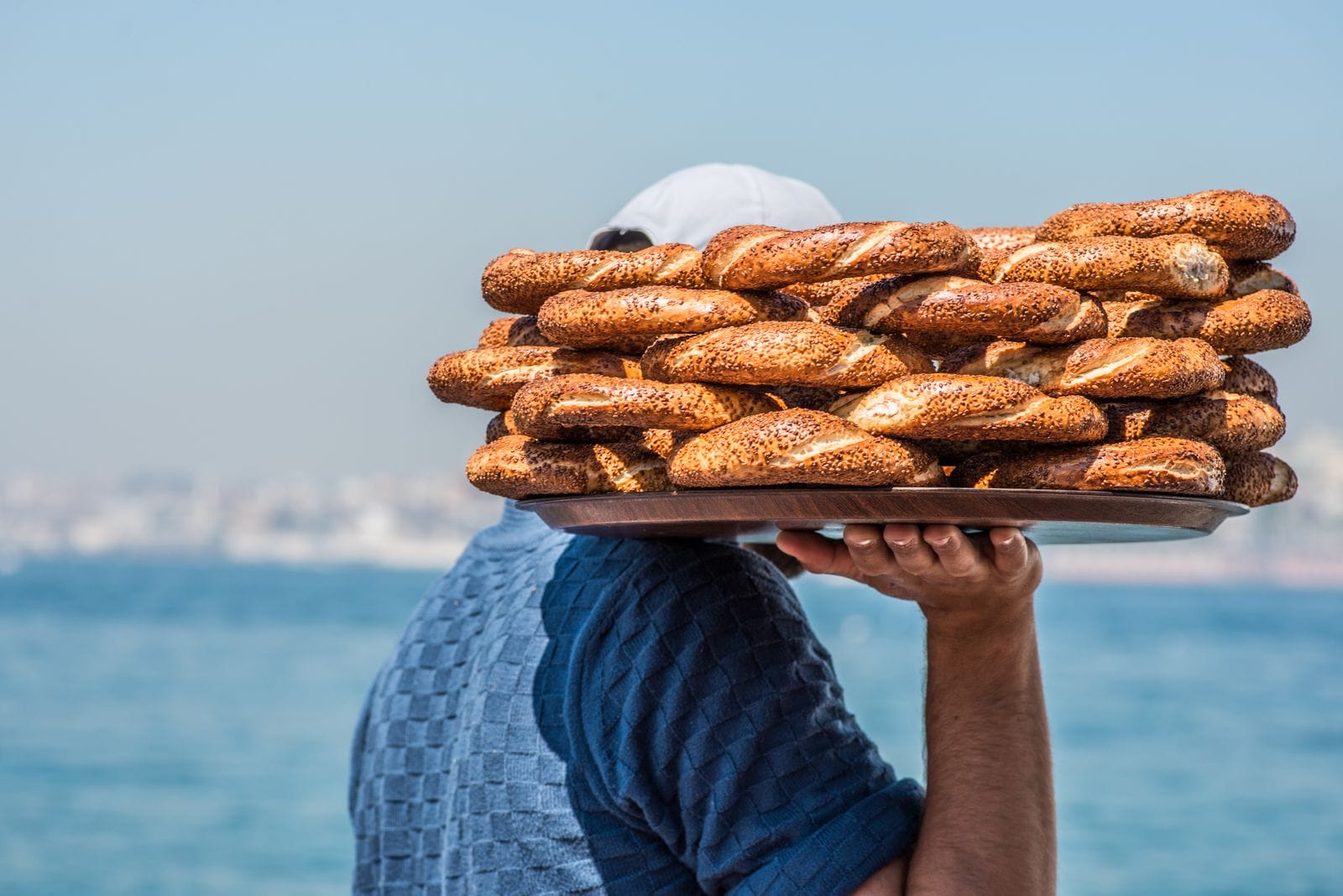On a side street just behind the lower edge of the Grand Bazaar lies a small, unsuspecting sign directing one up a flight of stairs to Kardeşler Köftecisi, a no-frills, hole-in-the-wall shop that has been serving grilled meatballs (köfte) for more than half a century. Unlike many nearby restaurants on the touristy strip, no one is trying to pressure you to go inside and there is no English menu – or any menu at all, for that matter. Kardeşler Köftecisi is truly an esnaf (small tradesmen’s) restaurant, as most of their customers work in the massive covered market and in other shops in the vicinity.

Yaşar Demir has manned the grill here for decades after initially starting out as an apprentice at the age of 16 in 1981, just a couple of years after his family moved to Istanbul from the mountainous northeastern province of Ardahan, which borders Georgia. His cousin Yunus Aktürk runs the front of the house, and has worked at Kardeşler Köftecisi since 1985. The relatives took over the shop, which first opened in 1970, from its previous owner, who hailed from Bursa province’s Inegöl district, an area just across the Marmara Sea from Istanbul that is famed for its köfte.

There are just four tables in the unassuming, nearly-hidden restaurant, but around lunchtime the grill is sizzling. Demir swiftly lays down rows of köfte over the charcoal-fired flattop from a large mound of freshly-shaped, plump spheres made in the Inegöl tradition, using high-quality ground beef rib, and a small mixture of onion and breadcrumbs, the latter of which acts as a binder. Black pepper is added liberally before the meat hits the iron.
Diners rotate in and out briskly, some opting to order an extra half-portion of the köfte. It is tasty and comforting, with the exterior of the meatballs pleasantly charred. Given the busy lunch rush and the shop’s popularity among local small business owners, it is clear that Demir has tapped into and maintained something that people keep coming back for, and we wouldn’t dare criticize what he’s got going.

Meanwhile, the piyaz, a simple salad of cooled white beans with chopped onion, carrot, lettuce and tomato dressed in lemon juice and extra-virgin olive oil was divine. The classic accompaniment to a plate of köfte, piyaz is often an afterthought at many spots. This is not the case at Kardeşler Köftecisi. We noticed that the olive oil and white beans were top notch, yet were still curious as to if there was any other trick involved.
“There’s no secret to the piyaz. The beans are quality, and if you cook them properly, it’s delicious,” Demir said matter-of-factly.

Lots of people come into Kardeşler Köftecisi for a quick, tasty lunch (a portion of köfte, piyaz and a cold ayran is 160 TL or just under $6, good prices for the area) and we notice that the delivery operation is even busier. Aktürk and two younger employees prepare and whisk away orders to nearby shopkeepers. The bazaar is packed as per usual on a weekday, but the side streets around Kardeşler Köftecisi are comparatively quiet. Like most of the best köfte, döner and kebab restaurants in Istanbul, Demir and his team close at around 5 p.m. Apart from köfte, piyaz and a daily dessert, the only other item left on the nonexistent menu is grilled chicken cutlets, which we eye with curiosity on a full stomach, rendering an excuse for us to come in again soon.

Approaching 60, Demir has been slinging köfte for most of his life, so we were curious how much he had left in him: “That’s unclear. I’ll keep on going for the time being, maybe for five or 10 more years,” he said. He adds that neither his nor Aktürk’s children would ever consider filling their fathers’ shoes, as the younger generation had the opportunity to study and now have white-collar jobs that Demir deems more comfortable than his own.

This dynamic emulates that of innumerable tradesmen in Istanbul, from tailors to shoemakers and coppersmiths to köfte masters. Men who didn’t have the chance to study work hard at difficult jobs their whole lives to ensure an education and better future for their children, but at the expense of the trade. At the moment in Turkey, we are witnessing perhaps the final generation of the true esnaf, small business owners that once formed the backbone of the city’s merchant and service sectors prior to the arrival of chain stores and shopping malls. Sometimes it is difficult to believe how small businesses in cutthroat cities like Istanbul have lasted as long as they have. But then again, Kardeşler Köftecisi was built on a decades-long reputation that has ensured their survival. Those representing the last wave of this culture are on the verge of retirement, and there is a serious lack of new blood to replace them. In 15 to 20 years, there will be few ustas – masters – like Demir left, if any at all.
Demir, not one to mince words, is just as frank and to-the-point when we ask him what he likes most about his lifelong profession: “We do this work as a labor of love – that’s it. If we didn’t like it, we would have given it up. It’s a difficult, tiring, hot, oily and dirty job!” he said with a smile, ruminating on what it’s like to stand in front of a grill full time for more than 40 years. They don’t make ‘em like him anymore.
Published on January 23, 2024
Related stories
February 28, 2024
Food Tours NDQuick Bite: This full-day Istanbul market tour draws from our best-of list in the European side’s Karaköy neighborhood and the Asian Kadıköy, tied together by a Bosphorus crossing, visiting two markets on two continents. Our favorite Istanbul experiences include exploring the eateries in local markets and crossing the Bosphorus on the public ferry. The route for…
November 9, 2023
Istanbul | By Karen Cirillo
IstanbulOn a busy street in Beşiktaş, nestled between a camera shop and a turşu stand, sits an unassuming storefront offering çiğ köfte. Open only after 3 p.m., it’s easy to walk by and not take notice of what seems like an average fast-food joint. But this is Çiğköfte Yiyelim (which translates to “Let’s eat çiğ…
October 18, 2023
IstanbulThe upper-middle class residential neighborhood of Dikilitaş in Istanbul's Beşiktas district is certainly pleasant enough, but is not a place we pass through very often and has few culinary attractions that we know of. So when we encountered Bay Köfte, a food truck churning out sandwiches one cannot find elsewhere in the city (or the…























































































